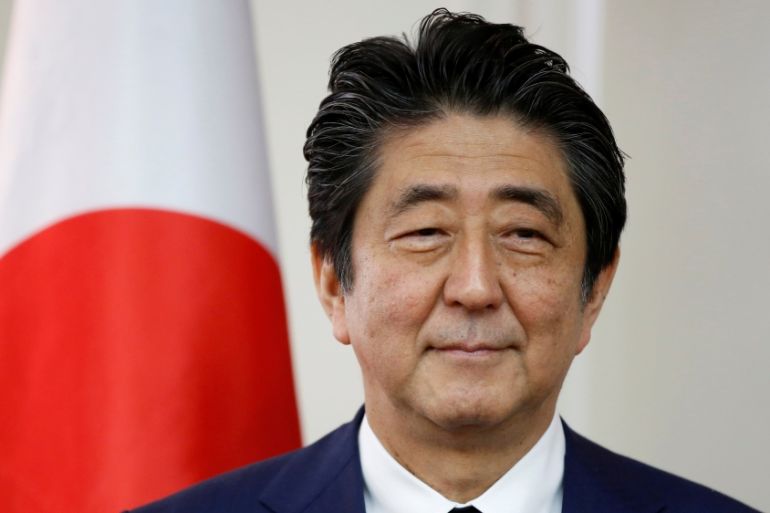Time for Shinzo Abe to enter the spotlight
First summit with China and South Korea in years offers Japan’s prime minister a chance to take focus off declining popularity.

It’s been a tough time of late for Japan‘s Prime Minister Shinzo Abe.
He’s dealing with two scandals involving alleged cronyism that have contributed to his popularity plummeting to all-time lows and sparked an increase in calls for him to resign, even from within his own Liberal Democratic Party.
Keep reading
list of 4 itemsOne of the biggest hurdles for athletes on the Olympic path: Money
Key takeaways from Xi Jinping’s Europe trip
When will EVs become mainstream in the US?
After being closely involved (sometimes a little too close as missiles flew over his country) in last year’s alarming increase in tensions on the Korean Peninsula, he had to take a diplomatic back seat and observe from a distance, somewhat voyeuristically like the rest of the world, South Korean President Moon Jae-in and North Korean leader Kim Jong-un taking turns to tiptoe over the border in the demilitarised zone at the inter-Korean summit.
To cap things off this week, Abe had to eat dessert that was served in a shoe while on a state visit to Israel.
What he needs is a major international event to thrust him back into the spotlight on a positive trajectory. Enter, South Korea’s Moon and Chinese Premier Li Keqiang for what will be the first trilateral summit between the three nations in two-and-a-half years, despite the fact the leaders were supposed to be meeting annually since the first one in 2008.
|
|
Tensions between the three countries in recent years over issues such as security and territorial disputes saw the summit postponed, but now they have some common ground that requires discussion. While the resumption of the meeting may not result in any major announcements, the fact it’s happening is significant given it’ll be the first visit to Japan by Moon and Li.
Their main areas of commonality now are trade, with talks continuing on a trilateral deal and the 16-nation Regional Comprehensive Economic Partnership, and North Korea.
‘Behaves disgusting’
Moon will use the summit as an opportunity to brief his counterparts on his talks with Kim and how he thinks the process of denuclearising the Korean Peninsula should best proceed.
On that front, there may be some disagreement. Japan is on the same page as the United States, wanting to maintain maximum pressure on Pyongyang through existing sanctions to ensure the regime keeps its promises. China, on the other hand, may want to reward North Korea economically as it heads down the path of denuclearisation.
Since the inter-Korean summit, there have already been warning shots fired from Pyongyang towards Japan with commentaries in the North’s state media. An opinion piece in the Rodong Sinmun, the official newspaper of Central Committee of the Worker’s Party, said Japan “can never evade the fate of the left-out person if it behaves disgustingly while repeating the old cliche of sanctions and pressure”.
South Korea‘s president knows that Japan needs to be a key part of the process and will spend a large amount of time during his meetings with Abe trying to find ways of improving the relationship between Tokyo and Pyongyang.
China has clearly played a major role in bringing the two Koreas to the point they are now through the enforcement of sanctions and direct influence over the leadership in North Korea.
The onus will now be on the Japanese prime minister to see how he responds to what he’s told during the meetings in Tokyo, and whether there will be any change in tone.
It’s a chance to reassert himself diplomatically, but whether it’s enough to improve his popularity at home and ultimately save his job is another question.